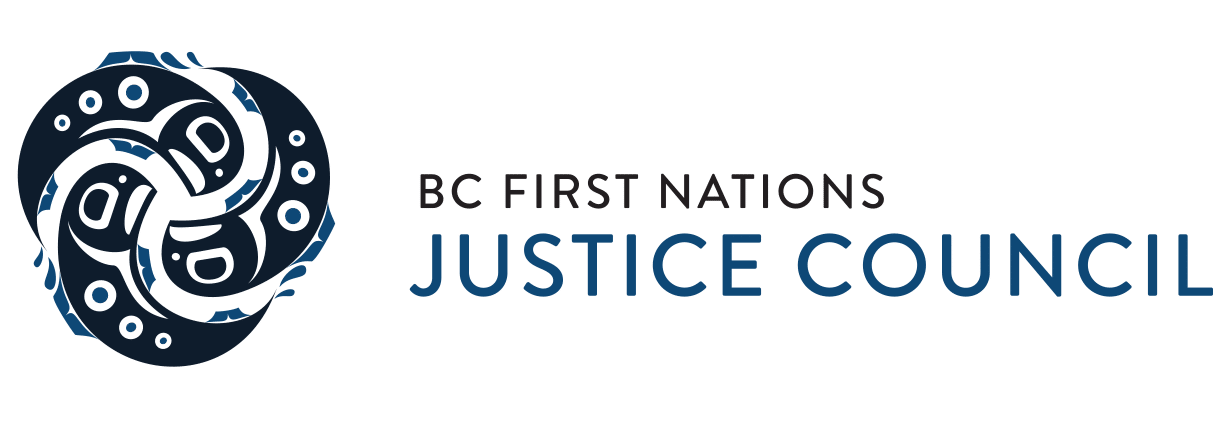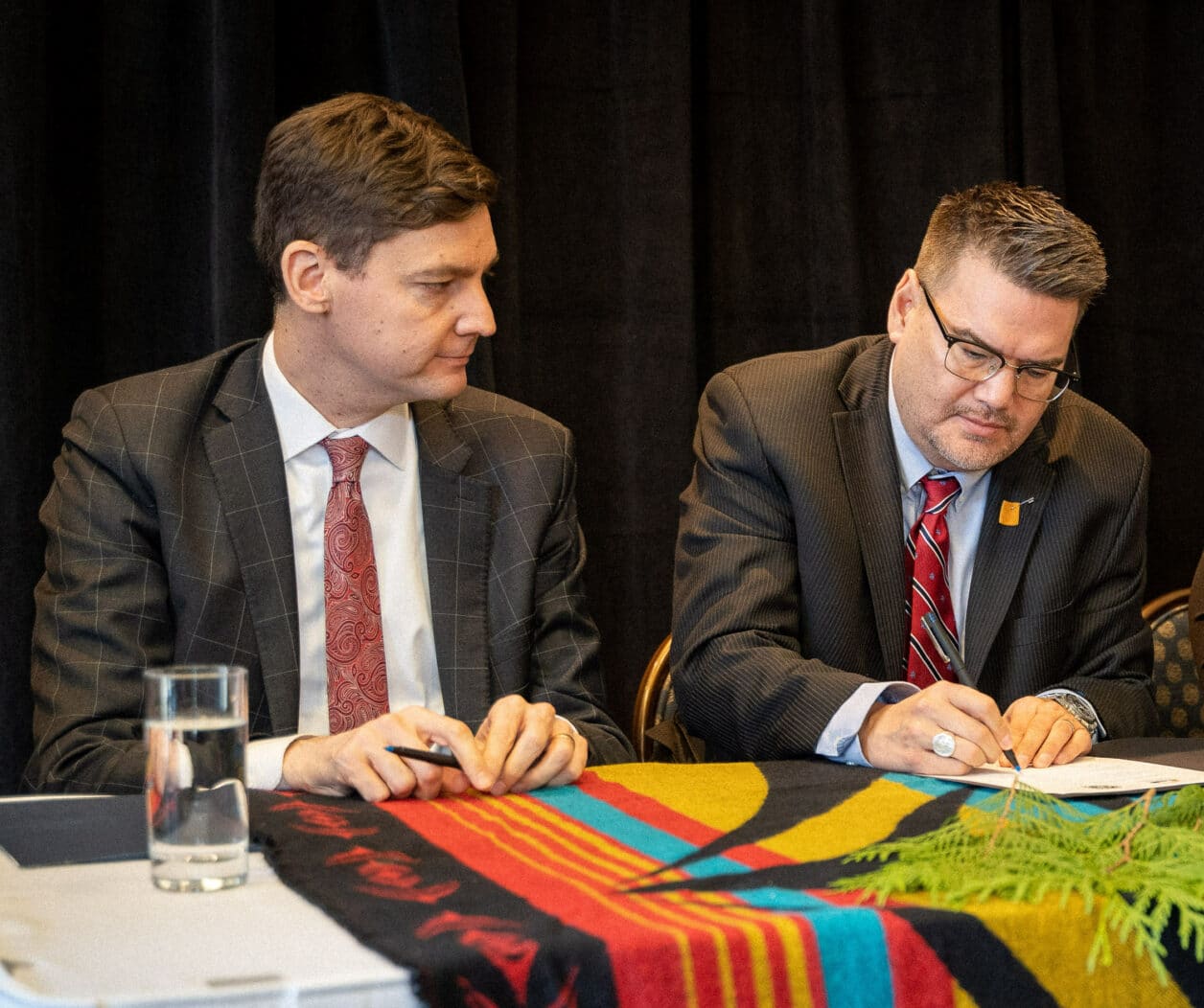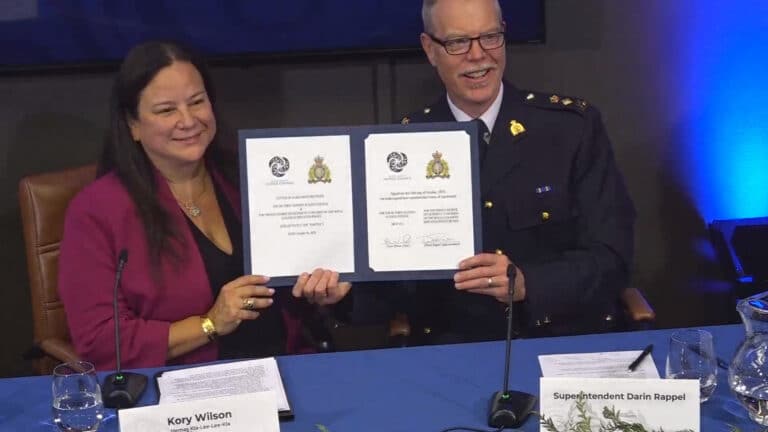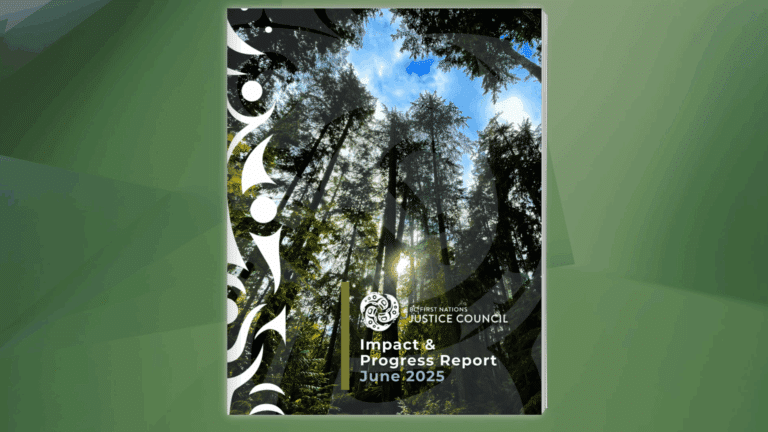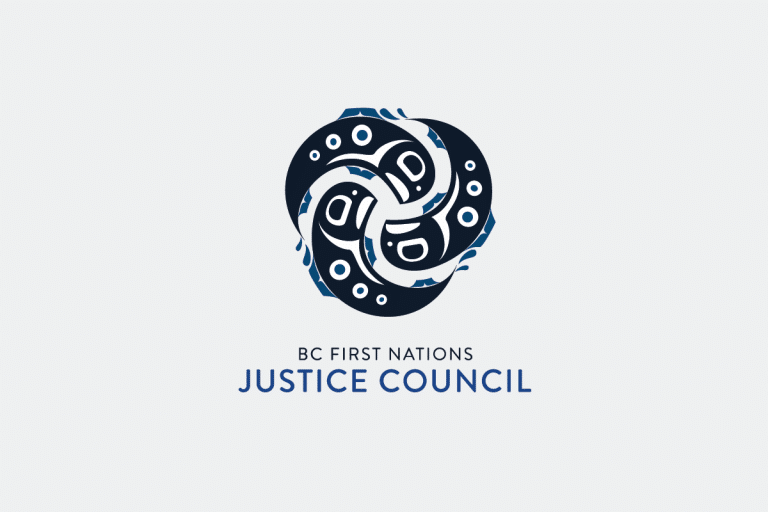tkwəɬniwt (Westbank), Syilx Territory – Minister of Justice and Attorney General of Canada, the Honourable David Lametti, tabled new legislation yesterday, known as Bill C-22, which has the potential to significantly divert low-risk Indigenous offenders away from incarnation and into addiction services and other corrective measures.
“Bill C-22 would make changes to both the Criminal Code and the Controlled Drugs and Substances Act by repealing mandatory minimum penalties for certain drug, firearm and tobacco offences,” says Doug White, Q.C., chair of the BC First Nations Justice Council (BCFNJC).
“This legislation, which we fully support, is an important step forward in the goal of reducing the overrepresentation of Indigenous people in our jails but also in reducing the harm that comes from incarceration and a criminal record – all of which arises from a justice model that is foreign to Indigenous people.”
Instead of punitive sentences, in an Indigenous justice system, the goal is to reconcile the accused with their own behavior and with the individual or family who has been wronged by their actions as well as restore peace, balance and healing within their communities.
“Research has clearly demonstrated that Indigenous people disproportionately experience repeated interactions with the criminal justice system that often lead to cycles that escalate and are difficult to break,” White says.
“For Indigenous low-risk offenders, breaking this cycle requires a holistic approach that considers diversion at every point of contact through the existing justice system to help these individuals rehabilitate and live full and productive lives.”
“Ultimately, our goal is to see all types of crime involving Indigenous people handled in a culturally-safe manner using trauma-informed approaches,” he adds.
Although mandatory minimum penalties would remain in place for serious offences, under Bill C-22’s proposed legislation, judges would gain sentencing options other than mandatory incarnation for non-violent offenders while prosecutors and the police would be encouraged to divert low-risk offenders away from the criminal justice system at a much earlier stage of interaction.
“Addressing the over-representation of Indigenous people in the justice system is a cornerstone of B.C.’s First Nations Justice Strategy, and we are pleased to see the Government of Canada also taking action to address this systemic issue,” said David Eby, Attorney General.
“Mandatory minimum penalties have a disproportionate impact on Indigenous communities. Repealing them and diverting first-time and low-risk offenders away from the courts to supports such as addictions programs will lead to better long-term outcomes. We look forward to continuing to work with the BCFNJC to build a justice system that better respects and addresses the needs of Indigenous peoples.”
In statistics from 2016, 20 per cent of all Indigenous offenders in federal institutions were sentenced for an offence which fell under the scope of mandatory minimum penalties.
-30-
About the BCFNJC
The BC First Nations Justice Council has a clear mandate to transform the justice system and create better outcomes for Indigenous people through implementation of the BC First Nations Justice Strategy.
The strategy, signed March 06, 2020, was jointly developed by the BC First Nations Justice Council, BC First Nations communities and the Province of British Columbia. It includes 42 actions along two paths which involve the reformation of the current system as well as the restoration of First Nation legal traditions and structures.
Media only contact:
Nancy Argyle
Manager, Media Relations
Office: 778-940-1520 ext. 105 | Cell: 236-455-0513
[email protected]
